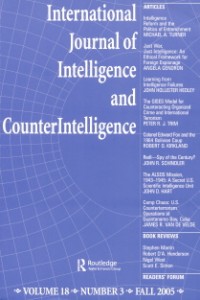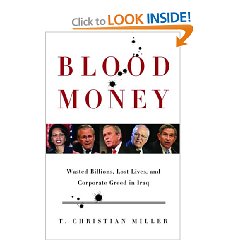
Revisionist, Questionable, Valuable, and a Starting Point,
Mark Moyar
While I came to hear authors like George Allen, whose 50 years of on-the-ground experience are presented in NONE SO BLIND, the definitive work on intelligence in the Viet-Nam war, and C. Michael Hiam, first time author who has done an utterly amazing job in describing, defending, and honoring Sam Adams in Who the Hell are We Fighting?, I have to credit this author, graduate of Harvard, student of Christopher Andrew the singular at Cambridge, with ripping me out of my chair and forcing me to think about the relative merits of documentation versus oral histories versus personal observation (I was there from August 1963 to late 1967).
Here are three bottom lines on the book:
1) It is some of the most erudite, earnest, well-intentioned, and potentially explosive revisionist history directly relevant to the intelligence-policy relationship as well as relations among nations.
2) It is lacking in an understanding of how the veterans of the war actually perceive it, taking both secondary sources and original documents from varied governments including China and Viet-Nam, at face value.
3) It merits the benefit of the doubt, a serious reading by those that were actually there, and inputs, in the form of oral histories, to the Oral History Project Head at the Vietnam Archive (Texas Tech University). If you have substantive comment to make on this book, don't stop here at Amazon–call them at 806.742.9010 and schedule a short telephone interview to add your oral history to the collection.
I read a lot and have had a fortunate life. I have always known that governments lie in the documents and their public statements, that secondary sources are all too happy to bend the truth to make a case, but it was not until this moment that I realized just how very urgent it is to dramatically increase our oral history and direct understanding of every aspect of the Viet-Nam debacle, one we repeat today in Iraq and Afghanistan, where those fighting have no memory of both the successes and failures of the past.
My gravest concern with this important and worthy book is that it plays to what the extremist unilateral militants–including the chicken hawks now serving–want to hear: that imperial adventurism can succeed if one just intervenes a little more harshly, a little sooner, with a bit more cleverness.
I have been an iconoclast, and I now find myself defending and praising an individual for having produced a work that conflicts sharply with my narrow understanding of the reality as I lived it, and that of the many others attending this conference.
I regard this book as a very courageous and intelligent offering, one that must be regarded as a work in progress, and one that will add substantially to our understanding once the author has a chance to write an epilogue that factors in the comments of those now living who were actually there.
Five stars for brave brains. This author must be reckoned with.

Click Here to Vote on Review at Amazon,
on Cover Above to Buy or Read Other Reviews,
I Respond to Comments Here or There








